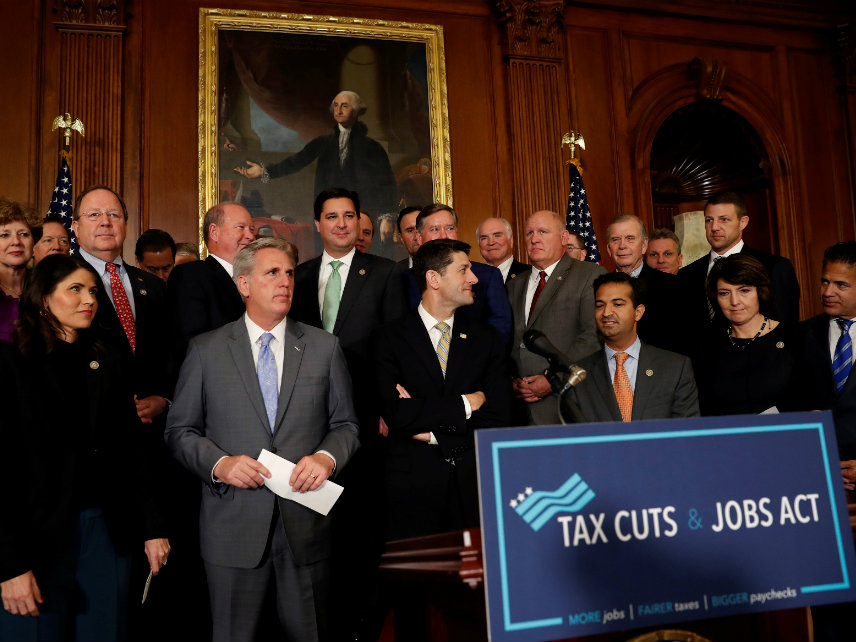House Republicans Want Permanent Tax Cuts They Can't Pay For
GOP legislators released their "Tax Reform 2.0" proposal, which aims to make last year's tax cuts permanent, adding trillions to the $21 trillion debt.

Republican lawmakers on the House Ways and Means Committee on Tuesday released a proposal to make permanent last year's tax cuts, which are currently set to expire in 2025.
Without a plan to cut a commensurate amount of federal spending, the so-called Tax Cuts 2.0 package could add trillions of dollars to the national debt during the next few decades. Extending the tax cuts would reduce annual revenue by about $165 billion, according to an analysis from the Tax Foundation.
Without a balanced budget in sight, the national debt, currently $21 trillion, will continue to rise, and the rate of increase will also rise. According to Congressional Budget Office projections, the 2017 Tax Cuts and Jobs Act will add $1.5 trillion to the national debt over the next ten years, even after economic growth is accounted for. But that's only if Congress lets the tax cuts expire in 2025. If that does not happen, higher deficits will plunge us into further unsustainable debt well after 2025.
"The further we go down this road, the more catastrophic the inevitable U-turn will be," Maya MacGuineas, president of the Committee for a Responsible Federal Budget, a Washington, D.C., group that favors balanced budgets, said in a statement. "The irresponsibility is just baffling."
The expiration date for the personal income tax cuts was widely regarded as a gimmick that was included in the tax cut bill to game the CBO analysis. Without that gimmick, the CBO projections would have shown a much larger increase in the national debt. But Republicans never intended to let the tax cuts lapse. "Those are sunsets that will never occur, we don't believe will ever occur, we don't intend to ever occur," Speaker of the House Paul Ryan (R-Wis.) said last year as the bill was being debated.
The House GOP plan to extend the tax cuts includes the creation of tax-free "universal savings accounts," aimed at encouraging people to save for retirement. The proposed changes would also allow individuals to crack open their retirement accounts without penalty whenever they have a new child.
The plan would expand 529 education accounts so individuals can "use their education savings to pay for apprenticeship fees to learn a trade, cover the cost of home schooling, and help pay off student debt." Finally, the framework suggests increasing the costs startup businesses can write off to reduce barriers to entry.
If the tax cuts were offset with spending cuts, Tax Reform 2.0 could be a step in the right direction. Taxes discourage work and investment while directing money from productive sectors of the economy to the government. Letting Americans keep more of the money they earn is therefore good policy. Universal savings accounts in the United Kingdom and Canada have been very successful at encouraging people to save for their retirement. Nearly half of all Canadians opened accounts within six years after they were authorized.
The Tax Cuts 2.0 proposal looks like election-year bait for the conservative base—a way to let them know that Republicans still pay lip service to small-government ideals, even if they're unwilling to be fiscally responsible once they are elected.

Show Comments (200)